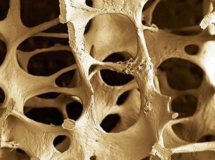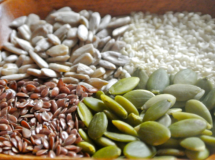
Kohv on vastuoluline teema, kuid viimasel ajal avaldatud laiapõhjalised uuringud viitavad üheselt, et paljud kohvi joomisega seotud hirmud võib rühmitada folkloori hulka.
Uuringud näitavad, et kohvi joomine:
- vähendab eesnäärme-, rinna-, kolorektaal-, endomeetriumi- ja maksavähi riski
- parandab insuliinitundlikkust ja vähendab diabeedi riski
- kaitseb rakukahjustuste eest
- kaitseb maksa
- vähendab sapikivide tekkeriski
- suurendab soolefloora variatiivsust
- kiirendab ainevahetust
- kaitseb südant
- vähendab insuldi riski
- parandab kognitiivset funktsiooni i.e. mälu ja otsustusvõimekust
- on neuroprotektiivse toimega i.e. vähendab Parkinsoni tõve riski
NB! Kohv EI mõjuta halvasti suuõõne bakteriaalset kooslust! Otse vastupidi, on uuringuid, mis viitavad tõenäosusele, et kohvil võivad olla ka teatud positiivsed, kaariesevastased mõjud.
Millega on seotud kohvi ärgastav mõju? Kofeiin on struktuurselt väga sarnane adenosiinile, mida nimetatakse ka keha rahustussignaaliks ja “väsimuse molekuliks”. Kofeiin seob adenosiini retseptorid ja blokeerib seega adenosiini toime, mille tulemuseks on rohkem ärksust, väsimuse vähenemine ning tähelepanu ja energia tõus. Närvirakud püsivad aktiivsed, dopamiini ja noradrenaliini vabanemine suureneb. Niisiis: kofeiin ei anna energiat ise, vaid takistab ajul aru saamast, et oleme väsinud.
Oluline on teadvustada, et kohv ei sisalda ainult kofeiini, vaid seal on sadu erinevad polüfenoolseid ühendeid, kiudaineid ja antioksüdante, mis sünergilises koosmõjus toimetavad, meie soolestiku mikrofloorale ja seeläbi ka immuunregulatsioonile mõju avaldavad.
Niisiis on ka kofeiinivaba kohv hea valik, sest kuigi seal on vähem kofeiini, jäävad teised boonused jooki ikka alles.
Üks uskumatult olulisi teadmisi on seejuures, et kohv on rafinaatidest läbi imbunud läänelikus menüüs oluline kiudaine allikas! Tass kohvi sisaldab ca 1,5g kiudaineid s.t. oluliselt rohkem kui nt klaas apelsinimahla(!), mis tähendab, et 2 tassi kohvi sisaldab rohkem kiudaineid, kui nt banaan, ning 3 tassi joomisega päevas võib kokku saada juba uskumatud 4,5-5 g kiudaineid, mis on ca 1/4 tänapäeva keskmise inimese menüü kiudianete sisaldusest.
NB! Kofeiinitaluvus on väga isiklik ja on tegureid, mis seda tugevalt mõjutavad, nt. geenid ja võimekus kofeiini metaboliseerida (ainevahetada). Niisiis saavad mõned endale rohkem kohvi lubada, teised aga vähem.
P.S. Kofeiini ainevahetust kiirendab tugevalt suitsetamine ja aeglustab antibeebipillide tarbimine. Kohviga peaksid ettevaatlikumad olema ka lapseootel naised.
Liialdamine ei tule kasuks ühegi asja puhul, kuid need, kes kohvi armastavad ja hästi taluvad, võivad omale teadmiseks võtta, et 1-3 tassi kvaliteetset kohvi päevas on suurepärane valik!
Nautigem! ![]()
![]()
![]()
Teadusuuringute lingid:
A daily cup of tea or coffee may keep you moving: Association between tea and coffee consumption and physical activity. International Journal of Environmental Research and Public Health. (2018). https://www.ncbi.nlm.nih.gov/pmc/articles/PMC6163361/
All coffee types decrease the risk of adverse clinical outcomes in chronic liver disease: A UK Biobank study. BMC Public Health. (2021). https://bmcpublichealth.biomedcentral.com/…/s12889-021…
Antioxidants. (n.d.). https://www.hsph.harvard.edu/nutritionsource/antioxidants/
Anti-proliferative and anti-migratory properties of coffee diterpenes kahweol acetate and cafestol in human renal cancer cells. Scientific Reports. (2021). https://www.nature.com/articles/s41598-020-80302-4
Association between coffee intake and incident heart failure risk. Circulation. (2021). https://www.ahajournals.org/…/CIRCHEARTFAILURE.119.006799
Association of coffee, decaffeinated coffee and caffeine intake from coffee with cognitive performance in older adults: National Health and Nutrition Examination Survey (NHANES) 2011–2014. Nutrients. (2020). https://www.mdpi.com/2072-6643/12/3/840
Associations between caffeine consumption, cognitive decline, and dementia: A systematic review. Journal of Alzheimer’s Disease. (2020). https://content.iospress.com/…/journal-of…/jad201069
Caffeine and alcohol intakes and overall nutrient adequacy are associated with longitudinal cognitive performance among US adults. The Journal of Nutrition. (2014). https://academic.oup.com/jn/article/144/6/890/4615979
Caffeine intake is related to successful weight loss maintenance. European Journal of Clinical Nutrition. (2016). https://pubmed.ncbi.nlm.nih.gov/26554757/
Coffee and cancer risk: A summary overview. European Journal of Cancer Prevention. (2021). https://pubmed.ncbi.nlm.nih.gov/28288025/
Coffee and its effects on the immune system. Trends in Food Science and Technology. (2021). https://www.sciencedirect.com/…/abs/pii/S0924224421003976
Coffee, but not caffeine, has positive effects on cognition and psychomotor behavior in aging. Age. (2013). https://www.ncbi.nlm.nih.gov/pmc/articles/PMC3824984/
Coffee, caffeine, and health outcomes: An umbrella review. (2017). https://www.annualreviews.org/…/annurev-nutr-071816-064941
Coffee, caffeine, and risk of depression among women. Archives of Internal Medicine. (2011). https://www.ncbi.nlm.nih.gov/pmc/articles/PMC3296361/
Coffee consumption and cardiovascular disease: A condensed review of epidemiological evidence and mechanisms. Journal of Agricultural and Food Chemistry. (2018). https://pubs.acs.org/doi/abs/10.1021/acs.jafc.7b04506
Coffee consumption and reduced risk of developing type 2 diabetes: A systematic review with meta-analysis. Nutrition Reviews. (2018). https://academic.oup.com/nutriti…/article/76/6/395/4954186
Coffee consumption and risk of prostate cancer: A systematic review and meta-analysis. (2021). BMJ Open. https://pubmed.ncbi.nlm.nih.gov/33431520/
Coffee consumption and risk of stroke in women. Circulation.(2009). https://www.ncbi.nlm.nih.gov/pmc/articles/PMC2729465/
Coffee consumption and stroke risk: Evidence from a systematic review and meta-analysis of more than 2.4 million men and women. Journal of Stroke and Cerebrovascular Disease. (2021). https://www.sciencedirect.com/…/abs/pii/S1052305720308703
Coffee consumption and the risk of depression in a middle-aged cohort: The SUN Project. Nutrients. (2018). https://www.ncbi.nlm.nih.gov/pmc/articles/PMC6163886/
Coffee diterpenes kahweol acetate and cafestol synergistically inhibit the proliferation and migration of prostate cancer cells. Prostate. (2019). https://pubmed.ncbi.nlm.nih.gov/30569541/
Coffee drinking and cancer risk: An umbrella review of meta-analyses of observational studies. BMC Cancer. (2020). https://pubmed.ncbi.nlm.nih.gov/32024485/
Coffee intake protects against symptomatic gallstone disease in the general population: A Mendelian randomization study. Journal of Internal Medicine. (2019). https://onlinelibrary.wiley.com/doi/pdf/10.1111/joim.12970
Coffee to reduce risk of type 2 diabetes: A systematic review. Current Diabetes Reviews. (2012). https://pubmed.ncbi.nlm.nih.gov/22497654/
Consumption of coffee or caffeine and serum concentration of inflammatory markers: A systematic review. Critical Refiews in Food Science and Nutrition. (2019). https://pubmed.ncbi.nlm.nih.gov/28967799/
Diabetes risk factors. (n.d.). https://www.cdc.gov/diabetes/basics/risk-factors.html
Dietary polyphenol intake in US Adults and 10-Year Trends: 2007-2016. Journal of the Academy of Nutrition and Dietetics. (2020). https://pubmed.ncbi.nlm.nih.gov/32807722/
Effect of coffee consumption on non-alcoholic fatty liver disease incidence, prevalence and risk of significant liver fibrosis: Systematic review with meta-analysis of observational studies. Nutrients. (2021). https://www.mdpi.com/2072-6643/13/9/3042
Effect of coffee on distal colon function. Gut. (1990). https://pubmed.ncbi.nlm.nih.gov/2338272/
Effect of in vitro digestion-fermentation on green and roasted coffee bioactivity: The role of the gut microbiota. Physiology and Behavior. (2019). https://pubmed.ncbi.nlm.nih.gov/30611488/
Effects of coffee and its components on the gastrointestinal tract and the brain–gut axis. Nutrients. (2021). https://www.ncbi.nlm.nih.gov/pmc/articles/PMC7824117/
Genetics of caffeine consumption and responses to caffeine. Psychopharmacology. (2010.). https://www.ncbi.nlm.nih.gov/pmc/articles/PMC4242593/
Habitual coffee consumption and cognitive function: A Mendelian randomization meta-analysis in up to 415,530 participants. Scientific Reports. (2018). https://www.nature.com/articles/s41598-018-25919-2
How much coffee can I drink while I’m pregnant?. (n.d.). https://www.acog.org/…/how-much-coffee-can-i-drink…
Human postprandial responses to food and potential for precision nutrition. Nature Medicine. (2020). https://www.nature.com/articles/s41591-020-0934-0
Microbiome connections with host metabolism and habitual diet from 1,098 deeply phenotyped individuals. Nature Medicine. (2021). https://www.nature.com/articles/s41591-020-01183-8
Nutritional risk factors, microbiota and Parkinson’s disease: What is the current evidence? Nutrients. (2019). https://www.ncbi.nlm.nih.gov/pmc/articles/PMC6722832/
Parkinson disease. Nature Reviews. (2017). https://www.nature.com/articles/nrdp201713




